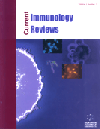-
oa Editorial [Dendritic Cells of the Liver from Ontogenic Development to Cell-Based Immune Therapy]
- Source: Current Immunology Reviews (Discontinued), Volume 8, Issue 1, Feb 2012, p. 2 - 2
-
- 01 Feb 2012
Abstract
The liver is rich in the diversity of its lymphocyte populations, with multiple phenotypes, cytotoxic activities, and cytokine secretion patterns found there. These intrahepatic lymphocytes are presumably selected and adopted for unique immunological functions. The hepatic immune system can respond to and eliminate pathogenic microorganisms, and toxins. Infection of the liver by pathogenic macroorganisms is identified and prompt immune response elicited to clear the infectious agents. At the same time, the liver is considered the least immunogenic among transplanted organs. Clearly, the immune response must be regulated locally within the liver in a unique way. Dendritic cells can capture and transfer information from the outside world to the cells of the adoptive immune system. They are critical for induction of primary immune responses and also important for the regulation of the cell-mediated immune responses as well as the induction of immunological tolerance. In this issue, the role of dendritic cells of the liver and liver disease is carefully reviewed by four experts from ontogenic development to cell-based immune therapy. Shu et al. have addressed the ontogenic development and population dynamics of hepatic dendritic cells. They stressed the importance of heterogeneity of DC subsets for better understanding of the diverse functions of these cells in the liver. HBV and HCV infection is a major cause of end-stage liver disease as well as hepatocellular carcinoma. Persisting hepatitis virus infection reflects unstable balance between tolerance and immunity to infected hepatocytes, due to an initially ineffective immune response to hepatocytes that express viral antigens. Kanto et al. have tried to overview many aspects of immunological response in HBV as well as HCV infection focusing on the role of hepatic dendritic cells. The exact role of dendritic cells in the pathogenesis of autoimmune liver disease is not completely clear, but these cells are involved in the initiation and progression of autoimmune processes. Abe et al. have tried to overview the role of dendritic cells on autoimmune liver disease, including autoimmune hepatitis, primary biliary cirrhosis, primary sclerosing cholangisits, and IgG4 related sclerosing cholangisits. Although pathogenesis of these four diseases are still an enigma, potential therapeutic strategy are also discussed in this paper. Finally, Akbar et al. described recent advancement for therapeutic application of DCbased therapy. This field is one of the most attractive one because DC-based therapy potentially included the alteration of skewed immunological response in each liver disease. Although full understanding of DC immunology in the liver is still in progress, the use of DC-based immunotherapy shows great promise toward the resolution of chronic inflammatory response in the liver.


